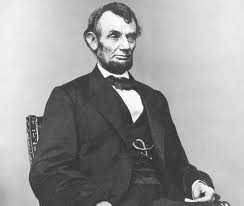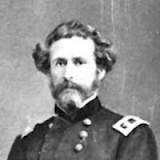 President Lincoln used Missouri diplomacy to reverse General Fremont’s political blunder. A historical example of the ineptness of political military appointees, was the posting of General John C. Fremont as Commander of the West, with headquarters in St. Louis, Missouri, in 1861. Fremont had recently replaced General Nathaniel Lyon, a United States Military Academy graduate, with battle experience in the Mexican War and an awareness of the sensitivity of Missouri’s precarious political balance. General Fremont’s ego, self promotion and delusions of potential national grandeur, doomed his relationship and future ambitions with Lincoln and the government in Washington.
President Lincoln used Missouri diplomacy to reverse General Fremont’s political blunder. A historical example of the ineptness of political military appointees, was the posting of General John C. Fremont as Commander of the West, with headquarters in St. Louis, Missouri, in 1861. Fremont had recently replaced General Nathaniel Lyon, a United States Military Academy graduate, with battle experience in the Mexican War and an awareness of the sensitivity of Missouri’s precarious political balance. General Fremont’s ego, self promotion and delusions of potential national grandeur, doomed his relationship and future ambitions with Lincoln and the government in Washington.
 John Charles Fremont’s explorations of routes to the West, some successful, but mostly not, were punctuated by returns to the East, where he would publish accounts of his journeys and promote Westward expansion. His personal promotion, captured the attention of a powerful and wealthy politician, Thomas Hart Benton of Missouri. Benton encouraged Fremont to continue expeditions to the west, including fact-finding ventures to California. Senator Benton was promoting westward expansion, which soon would be known as a United States policy of Manifest Destiny. Thomas Hart Benton’s greatest asset was undoubtedly his beautiful, intelligent and socially popular daughter, Jessie.
John Charles Fremont’s explorations of routes to the West, some successful, but mostly not, were punctuated by returns to the East, where he would publish accounts of his journeys and promote Westward expansion. His personal promotion, captured the attention of a powerful and wealthy politician, Thomas Hart Benton of Missouri. Benton encouraged Fremont to continue expeditions to the west, including fact-finding ventures to California. Senator Benton was promoting westward expansion, which soon would be known as a United States policy of Manifest Destiny. Thomas Hart Benton’s greatest asset was undoubtedly his beautiful, intelligent and socially popular daughter, Jessie.
 Fremont and Jessie were married, guaranteeing the social and political status of the newly weds. Jessie Benton Fremont became her husband’s greatest advocate, promoting his exploits and potential throughout her many spheres of influence. Between Jessie and her Senator father, Fremont’s name became synonymous with intellectual, military and political genius. John C. Fremont’s military adventures in California resulted in a court-martial, where he was convicted of mutiny and misconduct and was dishonorably discharged. President Polk, a friend and ally of Senator Benton, quickly commuted the discharge, thus saving, Jessie and John’s reputation and future.
Fremont and Jessie were married, guaranteeing the social and political status of the newly weds. Jessie Benton Fremont became her husband’s greatest advocate, promoting his exploits and potential throughout her many spheres of influence. Between Jessie and her Senator father, Fremont’s name became synonymous with intellectual, military and political genius. John C. Fremont’s military adventures in California resulted in a court-martial, where he was convicted of mutiny and misconduct and was dishonorably discharged. President Polk, a friend and ally of Senator Benton, quickly commuted the discharge, thus saving, Jessie and John’s reputation and future.
Fremont and his wife relocated to California, where a short tenure as Senator, brought the young politician to national attention. In 1856, John C. Fremont, as an abolitionist, became the first Republican candidate for President. He lost the election to James Buchanan and even his father-in-law, Senator Benton didn’t support his candidacy.
Early in the Civil War, as Commander of the West, General Fremont, declared martial law in Missouri. His dictatorial attitude and grandiosity didn’t endear him to the politically divided residents of the state. Early in August of 1861, Fremont made a career altering political blunder, he issued an Emancipation Proclamation, freeing all the slaves in the state of Missouri.
President Lincoln had been walking a fine line, keeping the border states and their citizens from joining the Confederacy. Lincoln’s diplomacy in Missouri was critical to the overall success of the Union cause. Fremont’s unilateral dictate, overstepped his authority and the President immediately dispatched an envoy to Missouri to instruct the Commander in St. Louis to modify the Proclamation. Fremont, defiantly, refused to countermand the edict and Lincoln instantly relieved him from command, replacing “The Pathfinder”, with General Hunter.
Fremont’s wife Jessie, was indignant at her husband’s humiliation. She traveled to Washington, on the earliest train, arriving after midnight and demanded an immediate audience with the President. Lincoln dressed and granted, Fremont’s official “Chief of Staff“, her interview. Jesse Benton Fremont flew into a berating of Lincoln, accusing him of sending a spy to pry into her husband’s affairs and threatening that if John C. Fremont wished, he could set up a government for himself.
President Lincoln whose patience was one of his better virtues, listened to all of Jessie Benton Fremont’s harangue and slanders, bid her goodnight and thanked her for visiting and related, at a later date,
“I had to exercise all the rude tact I have to avoid quarreling with her.”
Bummer


That was very interesting. I didn’t know about the Pathfinder and what he had done to free the slaves in MIssouri. I wonder if it had any bearing on Lincoln’s actions to free them a year later? Fremont must have put him in a tough place knowing this is eventually what he was going to do, but the war needs held him back for the time…..
James,
Thanks for the read. Bummer believes that Lincoln’s intent was always to free the slaves. He had to walk a fine line pacifying the border states, in order to keep them from going south. Missouri was a unique situation, the tensions in the state were already boiling and what wasn’t needed was Fremont’s ego and political asperations tipping the scales further, than they already were. Fremont’s Proclamation went beyond just freeing slaves, it also included confiscation of property and relocation, which further inflamed the locals. Bummer posts daily, stop again if you can.
Bummer
This anecdote makes it clear why Fremont thought he could run against Lincoln and McClellan in 1864 and win. I realize it took a large amount of ambition to blaze all those western trails but it still seems like the Pathfinder got in line twice.
Louis,
Bummer studied the exploits of Fremont and Carson for years and couldn’t ever hardly abide the Pathfinders self centered ways. Carson was a character unto himself, however Fremont and his wife believed that they could bluster their way over, under or around anyone. He and McClellan were cut from the same cloth, Bummer does believe that “little Mac” in his egotistical way, was brighter than Fremont. Have read that because Fremont was born a bastard and destitute, it impacted his self esteem, we could all claim some such excuse, but haven’t.
Bummer